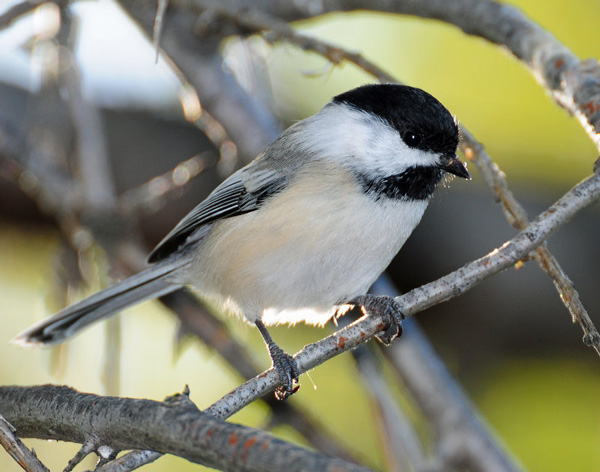|
Utah Bird Profile |
|||||
|
Name Roots: (chickadee, onomatopoeic) (L. ater, "black"; capillus, "hair of the head") |
|||||
| In Utah: |
 by Paul Higgins |
||||
| Nesting, feeding, characteristic behaviors: |
Nests in a deciduous tree or in a snag at a height of 4-8 (To 40) feet, in a
cavity nest. This species is a rare cowbird host. During the breeding
season, this species is an insectivore: lower-canopy
gleaner. During the non-breeding seasons this species is an omnivore: lower-canopy forager. |
||||
| Habitat: | Riparian woods, oak-maple woods,
and aspen woods Breeds in Utah in mountain riparian and lowland riparian habitats. |
||||
| How to find: |
The Black-capped Chickadee] is a favorite of feeder watchers
because it comes into feeders readily during the winter, especially when black
sunflower seeds are offered. It is found in any “wooded habitat” according to
Sibley where it feeds on seeds and insects. That means riparian woods, oak-maple
woods, and aspen woods. During the winter it moves into residential areas to
feed in orchards and other types of coniferous and deciduous trees. ~ Merrill
Webb |
||||
|
| USGS Profile
(Geological Survey) |
US Winter Range Map |
US
Summer Range Map | |
|||||
|
|||||